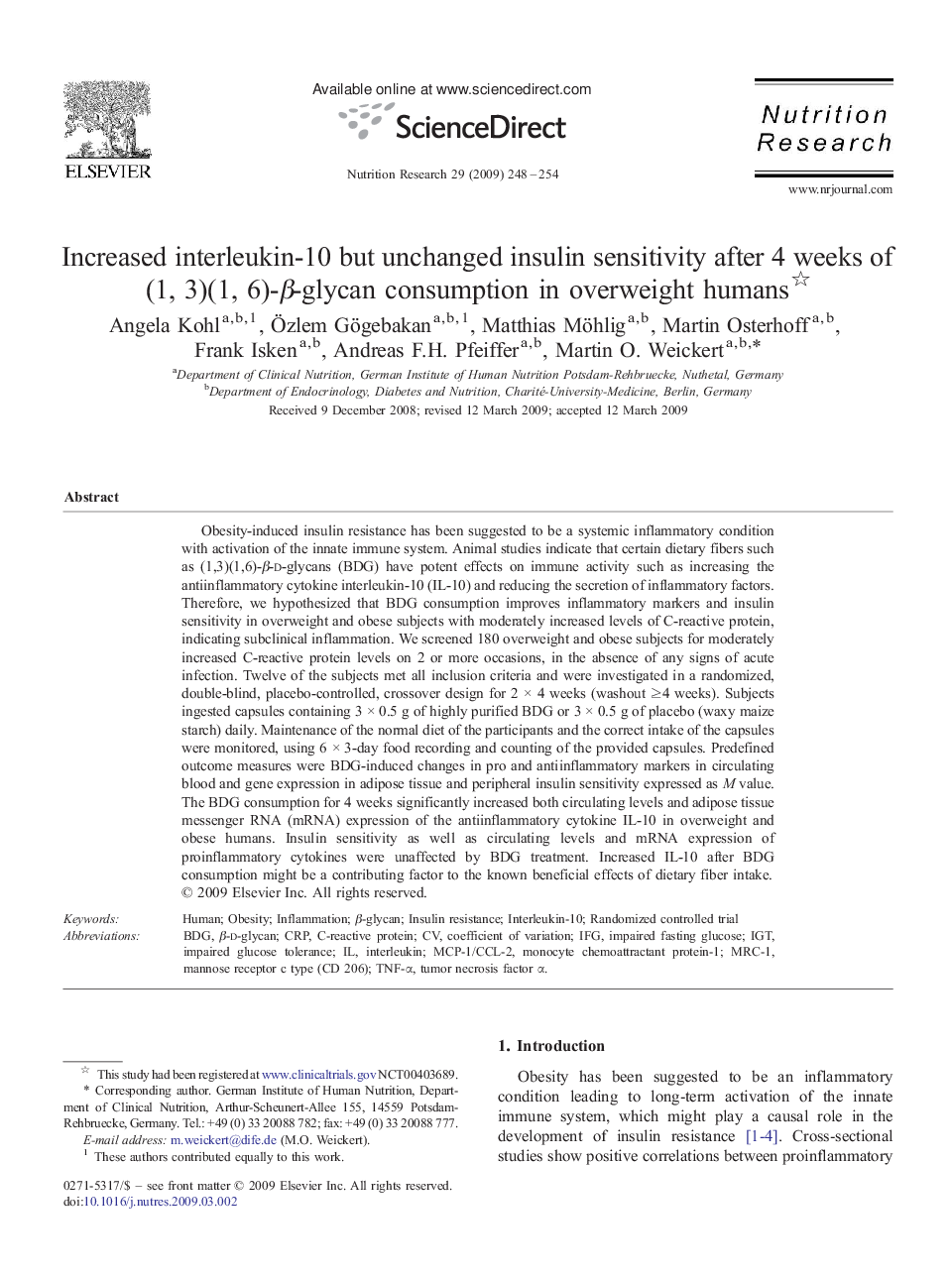| Article ID | Journal | Published Year | Pages | File Type |
|---|---|---|---|---|
| 2809900 | Nutrition Research | 2009 | 7 Pages |
Obesity-induced insulin resistance has been suggested to be a systemic inflammatory condition with activation of the innate immune system. Animal studies indicate that certain dietary fibers such as (1,3)(1,6)-β-d-glycans (BDG) have potent effects on immune activity such as increasing the antiinflammatory cytokine interleukin-10 (IL-10) and reducing the secretion of inflammatory factors. Therefore, we hypothesized that BDG consumption improves inflammatory markers and insulin sensitivity in overweight and obese subjects with moderately increased levels of C-reactive protein, indicating subclinical inflammation. We screened 180 overweight and obese subjects for moderately increased C-reactive protein levels on 2 or more occasions, in the absence of any signs of acute infection. Twelve of the subjects met all inclusion criteria and were investigated in a randomized, double-blind, placebo-controlled, crossover design for 2 × 4 weeks (washout ≥4 weeks). Subjects ingested capsules containing 3 × 0.5 g of highly purified BDG or 3 × 0.5 g of placebo (waxy maize starch) daily. Maintenance of the normal diet of the participants and the correct intake of the capsules were monitored, using 6 × 3-day food recording and counting of the provided capsules. Predefined outcome measures were BDG-induced changes in pro and antiinflammatory markers in circulating blood and gene expression in adipose tissue and peripheral insulin sensitivity expressed as M value. The BDG consumption for 4 weeks significantly increased both circulating levels and adipose tissue messenger RNA (mRNA) expression of the antiinflammatory cytokine IL-10 in overweight and obese humans. Insulin sensitivity as well as circulating levels and mRNA expression of proinflammatory cytokines were unaffected by BDG treatment. Increased IL-10 after BDG consumption might be a contributing factor to the known beneficial effects of dietary fiber intake.
